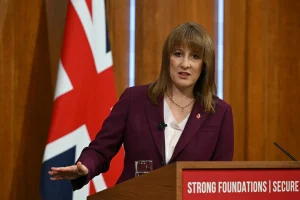In this article we hear from four Loyens & Loeff team members specialising in insolvency and restructuring matters, who take a look at the corporate insolvency fallout for Luxembourg specifically. How have Schemes and restructuring plans been impacted by the UK’s exit from the EU, and what has it meant for enforceability of judgements?
To give a broad overview, what have been the primary outcomes of Brexit on cross-border insolvency and restructuring proceedings?
In Luxembourg (as in many other EU jurisdictions) there is no specific legal framework on automatic recognition of UK judgements following Brexit. That is to say, there is no replacement or equivalent to the previously applicable: (i) EU Insolvency Regulation, (ii) Brussels Recast Regulation on recognition of judgments, and (iii) recognition in certain circumstances where the Hague Convention would typically not apply. The consequences have a significant effect on the use of certain previously common restructuring tools such as the UK Scheme of Arrangement and, more recently, the UK Restructuring Plan.
Whereas Schemes and other UK processes were commonly used to restructure debt prior to Brexit, their use has become less common post Brexit due to this lack of automatic and direct enforceability. The UK restructuring processes can still be used, but their scope of use is now limited, it being noted that parties need to undertake a more detailed factual analysis as to the need for enforceability of the UK judgement in the specific matter and associated risks as to lack of direct enforceability.
Post-Brexit, it appears from practice that a Scheme or other UK restructuring process is limited to use on debt governed by English law only and only with respect to the contractual nature of the debt. This is a change from past practice, where the UK processes could also be used to order positive actions as against the debtors. As positive actions against the debtor require immediate enforceability of the judgement for them to be effective, these positive actions would appear to be no longer viable, thereby limiting the scope of applicability of the Scheme.
As to market trends as a result of Brexit: (i) the overall use of Schemes has decreased, (ii) other restructuring processes in EU countries are considered as options in far more detail (such as the German or Dutch restructuring processes), and (iii) the scope of the Schemes has been reduced to and generally limited only to contractual debt matters.
Whereas Schemes and other UK processes were commonly used to restructure debt prior to Brexit, their use has become less common post Brexit due to this lack of automatic and direct enforceability.
The UK restructuring procedures, however, remain very practical and the UK Courts have significant experience in debt restructuring, making it an objective of parties to attempt to fit facts and circumstances to try and still use these processes. One such trend is the growing popularity of attempting to create a co-obligor structure following the Gategroup model to limit recognition issues.
What has been the impact on international recognition and enforcement of post-Brexit UK judgements in EU member nations?
English Schemes of arrangement (voluntary pre-insolvency proceedings) are not considered to be insolvency proceedings. As a result, prior to the Brexit transposition deadline such orders were generally automatically recognised in the EU under the Brussels Recast Regulation.
However, as no equivalent proceedings, treaties or recognition conventions exist in EU Member States, with the Brussels Recast Regulation no longer being applicable post-Brexit, sanctioned Schemes would now generally be required to undergo the exequatur procedure in order to be recognised in an EU Member State. In Luxembourg, the exequatur procedure is an ordinary civil proceeding without priority and as such may take significant time to achieve in contested proceedings, leaving an uncertainty in the restructuring transaction (which often proves fatal due to time being of the essence).
On the other hand, English Company Voluntary Arrangements (CVAs) are considered to be insolvency proceedings as they are listed under the European Insolvency Regulation[1]. Thus, prior to Brexit, rulings in relation to CVAs were entitled to automatic recognition in all Member States whereby the European Insolvency Regulation had been fully implemented (subject to that European Member State’s public policy). For example, following the Brexit transposition deadline, a Luxembourgish court would need to apply the exequatur procedure for the recognition of foreign judgements, as Luxembourg has not incorporated the European Insolvency Regulation into national legislation.
English restructuring plans were generally equated to those of Schemes of arrangement for the purpose of recognition (i.e. considered to fall under the scope of the Brussels Recast Regulation). However, following the (albeit controversial) Gategroup case[2], restructuring plans are now widely regarded as falling within the description of insolvency proceedings under the European Insolvency Regulation. Therefore, any restructuring plans launched pre-Brexit would likely be automatically recognisable in all Member States whereby the European Insolvency Regulation had been fully implemented, while restructuring plans launched post-transposition period would follow the exequatur (or equivalent) procedure and not be automatically recognised.
More specifically, what does the UK’s departure from the Lugano Convention mean for judgements?
The exequatur (or equivalent) procedure is only applicable if there is no existing convention or treaty between the UK and another Member State whereby automatic recognition exists. Previously, the Lugano Convention on jurisdiction and the recognition and enforcement of judgments in civil and commercial matters was seen as a potential means of obtaining recognition of a Scheme or a restructuring plan in Europe. However, since Brexit (and the UK having failed to accede in its own right, outside of being an EU Member State), the Lugano Convention is no longer applicable to the UK.
The Lugano Convention would have been useful for the purpose of recognition of a Scheme (which is not an insolvency procedure). Some parties saw the potential accession by the UK to the Lugano Convention as a means of ensuring recognition of a restructuring plan, but the decision of the English Courts in the Gategroup matter cast significant doubt in this respect.
While the facts of the Gategroup matter differ from restructuring plans launched post-Brexit, (as the proceedings were initiated on the day of the Brexit transposition deadline), this case provided a detailed analysis of an English restructuring plan, and ultimately ruled that it fell within the bankruptcy proceedings exemption of the Lugano Convention. This had the consequence that the choice of the English Courts as the location for insolvency proceedings to be commenced did not fall within the scope of Lugano, and thus did not qualify for automatic recognition.
The concern with a lack of automatic recognition of these judgements is that while in the majority of Member States, a ruling pursuant to a Scheme, a CVA, or a restructuring plan would likely be recognised under their exequatur (or equivalent) proceedings[3], if a Luxembourg entity is the initiator of a UK Scheme of arrangement or a restructuring plan, for the ruling to be recognised in Luxembourg, they must first have had a COMI shift, or shift of place of central administration to England or other procedural steps. Failing this, in the eyes of the Luxembourg court, the English court ruling on the Scheme, CVA, or restructuring plan does not have jurisdiction to hear a Luxembourgish entity’s pre/post-insolvency proceedings.
The exequatur (or equivalent) procedure is only applicable if there is no existing convention or treaty between the UK and another Member State whereby automatic recognition exists.
Secondly, as Luxembourg has a somewhat outdated idea of creditor cramdown through the concordat preventative de faillite procedure[4], and has not yet implemented any of the measures within the European Insolvency Regulation, there is a certain level of uncertainty as to whether a Luxembourg court would recognise the notion of creditor cramdown in the pre/post-insolvency mechanisms which are employed through Schemes, CVAs or restructuring plans in line with their national public policy. This means that, following lengthy exequatur proceedings, companies run the risk that the Luxembourg court finds that Schemes, CVAs and restructuring plans whereby creditor cramdown are ordered are contrary to public policy, meaning that the recognition order cannot be given.
While certain practitioners argue that by virtue of Luxembourg having failed to implement the Insolvency Regulation by transposition deadline, elements of creditor cramdown ought to be recognisable in a Luxembourg court (if the need for recognition should arise), this cannot be guaranteed leaving an air of uncertainty. While this risk is remote, (a lack of public policy is rarely used as grounds to justify a ruling), it cannot be ignored, as was shown in Ireland in Apperley Investments Limited & Others v Monsoon Accessorize Limited [2020] IEHC 523.
An English Scheme/CVA/restructuring plan is perfectly fine to proceed in the UK without being subsequently recognised in a European Member State, unless the proposed procedure expects to make changes within a European Member State whereby recognition is required. As detailed in the DTEK case[5], an English or Welsh judge sanctioning one of these actions should have confirmation that there is a reasonable likelihood of recognition in the relevant Member States before sanctioning such an action.
Have there been any more significant developments in the insolvency sector since the end of the Brexit transition period?
Generally, there have been no major developments in the area of insolvency law in Luxembourg since the end of the Brexit transposition period. However, it is important to note that the COVID-19 pandemic was ongoing at the time the transition period finished, and the various stays of payments permitted across various jurisdictions had led to a lower number of insolvency proceedings being initiated within Luxembourg, but we have recently seen some signs that this is changing.
Separately, while the European Insolvency Regulation existed prior to the end of the Brexit transition period, more Member States have implemented national measures to harmonise their approaches with that seen in the UK. However, Luxembourg has not yet done so, nor has it implemented the EU Restructuring Directive. This means that Luxembourg currently does not have the restructuring tools that other EU jurisdictions have implemented (such as, for instance, the French safeguard and the German and Dutch Schemes), and thus complex restructurings are not done in court in Luxembourg but rather settled out of court by security enforcement or by using procedures abroad.
That being said, the so called ‘Luxembourg pre-pack’, which is completed using the very advantageous and robust Luxembourg financial collateral legislation, remains a very common means to implement a cross border debt restructuring. This mechanism entails the enforcement of the top Lux share security and thus transferring ownership of the distressed or restructuring group of companies to the relevant creditor groups. The Luxembourg collateral law remains one of the most, if not the most, creditor-friendly laws in Europe.
Luxembourg currently does not have the restructuring tools that other EU jurisdictions have implemented
What implications do these post-Brexit developments have for Luxembourg?
The new changes have certainly led to a renewed interest and further requests surrounding where Luxembourg stands on matters such as the implementation of the EU Restructuring Directive or the recognition of Schemes, CVAs or restructuring plans, along with an increased push for clarity in this respect in the Luxembourg market itself. Other than adding more complexity to the structuring around restructuring deals, Luxembourg is still a very popular restructuring jurisdiction because of the number of Luxembourg SPVs that are involved in international financings and the very creditor-friendly financial collateral legislation, which brings the enforcement of Luxembourg share security to one of the most popular ways of taking control of a debtor group in Europe.
Is the current status quo regarding UK insolvency likely to change in the near future?
It is rather unlikely to substantially change, but depending on how Luxembourg will implement the EU Restructuring Directive, using a Scheme may become easier in the future.
Separately, there is discussion as to whether the UK may attempt to accede to the Lugano Convention. While, as per Gategroup, this would not be of assistance to those seeking to initiate restructuring plans or, separately, CVAs, this could certainly aid companies or groups seeking to initiate Schemes out of the UK while having their COMI/headquarters/place of central administration in an EU Member State, or in one of the other countries which are a party to the Lugano Convention.
We anticipate more complex litigation, in particular if recognition of UK judgments are sought in the insolvency context. Once exequatur procedures are launched concerning post-Brexit UK pre-insolvency and insolvency judgments and the Luxembourg judgments are subsequently rendered, creditors will have more clarity on the likely implications, timing and consequences if enforcement of a UK judgment is needed in Luxembourg.
Why is it essential to seek out experienced legal counsel for this?
As relayed above, there are very large discrepancies in terms of the recognition of pre-insolvency proceedings initiated in the UK across Europe and within EU Member States. What makes the difference in complex restructuring cases is not only a dedicated team and international restructuring experience but also being familiar with the UK and US regimes and concepts so the best solutions can be found.
The advice required depends on the type of financing involved, i.e. a bonds transaction (where there is actually another potential grounds for justifying a creditor cramdown – if recognition is actually sought in Luxembourg – through Article 470-13 of Luxembourg Companies law) or a credit financing as briefly demonstrated above, which means that legal counsel with experience is needed in this area. This is even more necessary in Luxembourg; given the lack of clarity surrounding this area of law, this is absolutely essential at present.
[ymal]
Why is a multidisciplinary team ideal for these situations?
Given that most large-sized multijurisdictional debt restructurings entail many different layers of debt, often both loan and bond debt, it is key to have a multidisciplinary team that is familiar with corporate, lending and bonds aspects as well as with restructuring proceedings, mechanics and tools. For us, one of the main added value to our cross-practice restructuring team is also that many of our people have UK or US legal background or training and are thus familiar with both civil law and common law concepts and legal mindsets. In addition, any complex restructuring requires a team comprising corporate, finance, tax and litigation experts to ensure that all aspects are catered for.
During your collective time in practice, what changes have you observed in the way that financial restructuring is undertaken?
We see more litigious cases now that funds tend to be on the sponsor and lender side. There are also more widespread alternatives where not just the UK or the US is driving the restructuring process but other jurisdictions might be key as well, or a local restructuring process may even be needed to ensure the key assets are secured. We have also noted a US influence on the parties and structures now that, in the last decade, more US funds have invested in Europe and some US firms have beefed up their European (or at least London) presence.
[1] Regulation (EU) 2015/848 of the European Parliament and of the Council of 20 May 2015 on insolvency proceedings (recast), as amended, Annex A.
[2] Re Gategroup Guarantee Limited [2021] EWHC 304 (Ch)
[3] For example, Spain, as per Book II of the CIL and Germany under the German Corporate Stabilisation and Restructuring Act, which was modelled on the English Scheme of arrangement and allows for both horizontal and vertical cramdown of dissenting creditors.
[4] It is also worth noting that this procedure can only be initiated if the place of central administration is in Luxembourg, i.e. no consideration of creditor cramdown of a Luxembourg company’s creditors following a COMI shift.
[5] Re DTEK Energy B.V. & anr [2021] EWHC 1456 (Ch) (convening); [2021] EWHC 1551 (Ch) (sanction).
18-20, rue Edward Steichen, L-2540 Luxembourg
Tel: +352 46 62 30
Fax: +352 46 62 34
Michael Scott, partner, is a member of the dedicated Corporate Restructuring Team in Loyens & Loeff’s Luxembourg office and co-heads the overall Luxembourg Restructuring practice. He focuses on complex cross-border distressed debt restructurings for noteholder groups and multinational companies. He mainly advises US and UK based clients with investments in Luxembourg entities owning target groups in EU jurisdictions.
Anne-Marie Nicolas, partner, heads Loyens & Loeff’s Luxembourg Banking & Finance practice and co-heads its Luxembourg Restructuring practice. Anne-Marie focuses on secured lending, including acquisition finance and real estate as well as distressed financings, security enforcements and debt restructurings.
Véronique Hoffeld, partner, is a member of the Executive Committee of Loyens & Loeff Luxembourg and heads the Litigation & Risk Management Practice Group of its Luxembourg office. She focuses on commercial law, financial litigation and international arbitration. She is also recognised for her contentious insolvency prowess.
Patrick Ferguson, associate, is a member of the Banking and Finance practice group in Loyens & Loeff’s Luxembourg office. Patrick specialises in banking and finance law and acts for private equity firms, financial institutions and investors in various types of cross-border finance transactions, including secured lending, acquisition finance, refinancings and restructuring.
Loyens & Loeff is a leading full-service European law firm with home markets in Luxembourg, Belgium, Switzerland and the Netherlands which specialises in legal and tax matters. From its Benelux and Switzerland offices and in key financial centres around the world, its 1,000 advisers are well-prepared to advise on a broad range of issues including in or out-of-court restructurings, pre-insolvency issues, security enforcements, cross-border insolvencies, corporate governance, financing and rescheduling, distressed acquisitions and sales, distressed debt trading and investments, as well as crisis management and debt restructuring.





















